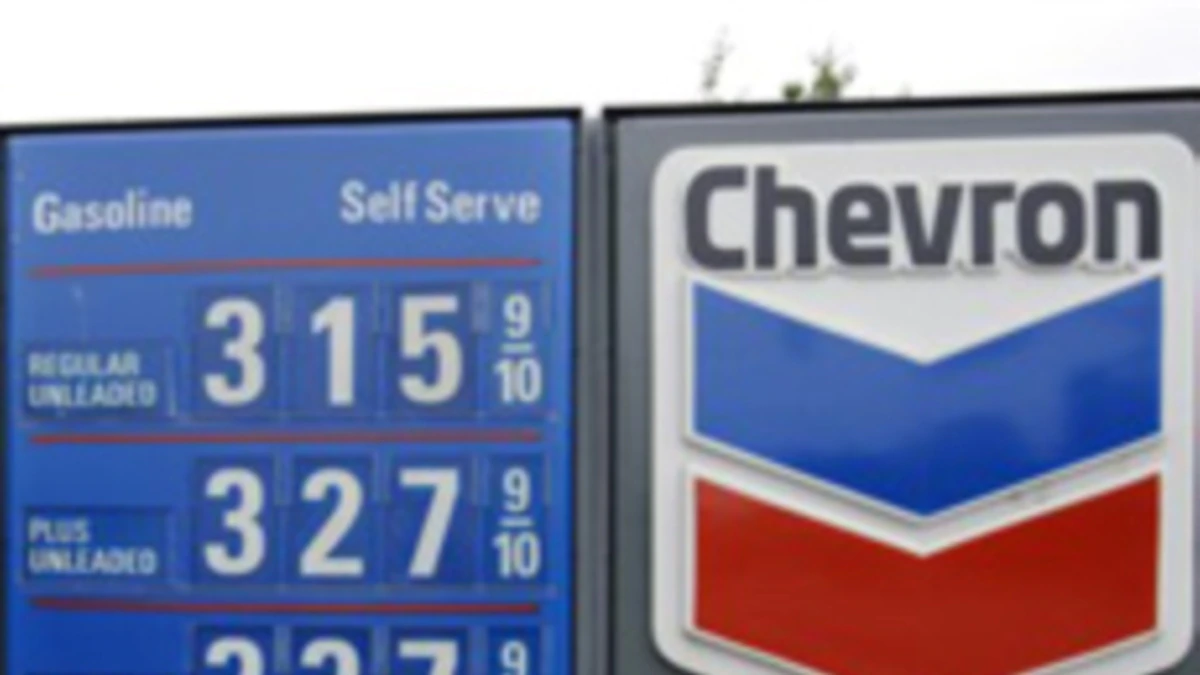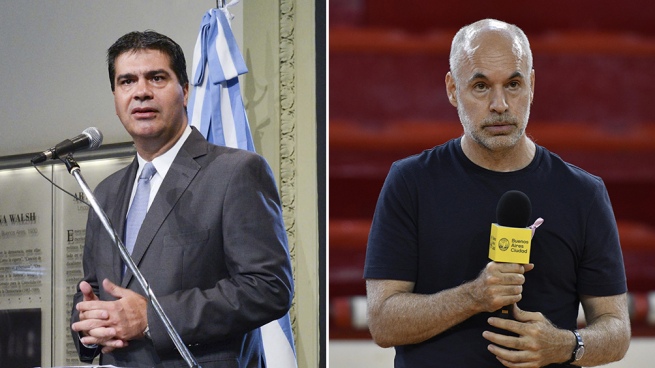The American company Chevron could help replace the demand for oil that Russia imported from Venezuela if the United States expanded the license that allows it to operate in Russia despite sanctions, experts say.
The Chevron oil company, the last US company remaining in Venezuela, is preparing to return to extracting oil in Venezuela if the US issues a license in its favor. Chevron executives have met with US government officials, presenting arguments in favor of granting greater permits to the company to operate in the South American country, according to media reports.
Offer “in the freezer”
The freedom of operations and the eventual increase in production of up to 800,000 barrels per day by Chevron does not depend exclusively on the good will of the US company and the government of Nicolás Maduro, warns Antonio De La Cruz, a Venezuelan specialist in economics and Petroleum.
The main limitation is economic sanctions implemented by the government of former President Donald Trump in 2019 against the local oil industry. To unlock them, a key meeting took place days ago between Mike Wirth, CEO of the US company, and the Secretary of Energy of the Joe Biden government, Jennifer Granholm, the newspaper reported. The Wall Street Journal.
“There have been no face-to-face meetings between Chevron and the Maduro regime. It would be sanctioned”, explains the expert to the voice of america. The offer to Biden to accept easing the sanctions is that Chevron Venezuela can supply part of the demand for 700,000 barrels per day that the US imported from Russia, which it plans to cut from the end of April as a result of the war.
In 2019, before Chevron imposed sanctions on the export of Venezuelan crude, the joint projects of the state oil company PDVSA and the US company produced between 150,000 and 200,000 barrels of oil per day. In total, then, Venezuela was exporting some 440,000 barrels of oil a day to US refineries, according to a source with knowledge of the industry.
If a sanction is issued that allows Chevron to operate again in Venezuela, the company could contribute to increasing the current production of crude oil in Venezuela. “We could increase production; it would be a gradual impact. It wouldn’t be like flipping a switch, but it could definitely be done,” the source said.
Chevron has been working in Venezuela for more than 90 years. The company has four projects that works together with the state oil company, PDVSA: Petropiar, in the Orinoco belt, in which they have a 30% interest; Petroboscan, in the Boscán crude oil field, of which they have 39.2%; Petroindependiente, in Lake Maracaibo, of which they have 25.2%, and Petroindependencia, also in the Orinoco belt, of which they have 34%, according to a report that the company submitted to the US Federal Trade Commission. US (FTC).
Chevron has a license that allows it to carry out minimal maintenance operations in Venezuela and has accumulated a debt of around 2,000 million dollars, by continuing in that country without being able to carry out its operations of extracting and exporting crude oil.
A company spokesman declined to comment on the talks with Washington, saying the oil company “does not comment on rumors or speculation.”
“We continue to conduct our business in compliance with the current sanctions scheme provided by OFAC (Office of Assets Control of the Treasury Department),” Ray Fohr, a Chevron spokesman, told the press. voice of america in an email. “We are a constructive presence in Venezuela, where we have investments and a large workforce that depends on our presence,” she added.
Proposal in Miraflores
The proposal has already reached the Miraflores Palace through spokesmen for the Biden government, including adviser Juan González and ambassador James Story, De La Cruz pointed out, based on press reports and political complaints in the US. In a direct meeting with Nicolás Maduro, on Saturday, March 5, that possibility was raised.
“Chevron is producing about 120,000 or 130,000 barrels a day. It can take them to 400,000 barrels and the other 400,000 (to add 800,000) is production that PDVSA would give it for its commercialization”, explained the expert.
A State Department spokesman told the VOA that it will not advance actions in relation to sanctions, but that the US has “made it clear that it would review some sanctions policies if the parties in Venezuela reach significant progress in the negotiations in Mexico.”
Another determining condition that is being negotiated is that the US oil company assumes the majority shareholding of the so-called joint ventures in the industry. Currently, the State reserves the majority shareholding for itself. Chavismo, which controls the Venezuelan Parliament, would need to reform the Hydrocarbons Law to allow it.
According to De La Cruz, Maduro’s allies are willing to change the law, but a “fundamentalist” sector of the official party, the PSUV, is little or not at all happy with the idea of changing it.
The final decision will depend on the market and, especially, on whether Europe decides to do without crude oil, gas and its derivatives from Russia. That topic will be discussed in high-level meetings, which include President Joe Biden.
Germany is one of the countries that believes that such cuts “would not benefit anyone” and would cause the loss of hundreds of thousands of jobs.
The American president announced last Thursday a tightening of economic sanctions against the Putin government.
Political pressures in the US against the originally secret meetings between Washington spokesmen and Maduro himself have slowed down the Chevron issue, De La Cruz details. “He’s in the freezer right now,” he says.
It adds, however, that the White House can expeditiously unfreeze the proposal, through a new license. “I could give it to you tomorrow,” he indicates.
From Moscow to Washington
Geoff Ramsey, director for Venezuela of the US think tank Washington Office On Latin America (WOLA), recalls that the energy alliance between Russia and Venezuela it has become entrenched in recent years precisely as a result of the economic sanctions of the United States.
Press reports indicate that Venezuela has even received payments in Russian government accounts for its clandestine oil shipments. “It is an inexplicit dynamic. Venezuela has difficulty transferring these funds” because of the sanctions on the Kremlin for its war in Ukraine, says Ramsey.
The Putin government has arranged its market to trade Venezuelan oil since the restrictions of the Trump times. Ramsey underlines, however, “the historical tradition” of the trade links between Washington and Caracas, which date back many decades before the emergence of Chavismo.
The US was the main buyer of oil from Venezuela. In 2016, even with Hugo Chávez in the presidency, the South American country exported 65% of its nearly 2.5 million barrels of crude oil to the North American nation.
That dynamic changed drastically due to political disputes, with Washington denouncing democratic restrictions and Caracas, destabilization attempts and allegedly plotted coups from the governments of the North.
Venezuela went from producing 3.2 million barrels of crude per day in 1998 to only 788,000 in February of this year, according to official figures reported to the Organization of Petroleum Exporting Countries.
The opposition to Chavismo affirms that the collapse responds to mismanagement, corruption, expropriation of companies in the sector and lack of infrastructure maintenance by the governments of Hugo Chávez and Maduro. The current executive power attributes the crisis to sabotage and the sanctions imposed since 2017 by the White House.
Ramsey points out that most US refineries in the Gulf of Mexico were specifically designed to refine Venezuelan crude. Maduro’s “interest” after the meeting with Biden spokesmen was evident, he says.
The Venezuelan president, however, “seems not to be willing to totally abandon his authoritarian project, nor is he totally willing to give in to the conditions of the United States in this rapprochement,” he assures the press. VOA.
Maduro, in his opinion, is currently evaluating the offers of his alliance with Russia and the eventual recomposition of relations with the United States.
“The Maduro government has been forced to sell its oil at a steep discount to Russia. An unforeseen effect of the sanctions has surely been the rapprochement between Caracas and Moscow”, emphasizes Ramsey.
The WOLA director warns that Maduro can use his links with Russia as “blackmail” to try to convince the United States that it is in their mutual interest to reestablish trade relations between the two nations.
Connect with the Voice of America! Subscribe to our channel Youtube and turn on notifications, or follow us on social media: Facebook, Twitter and Instagram.







